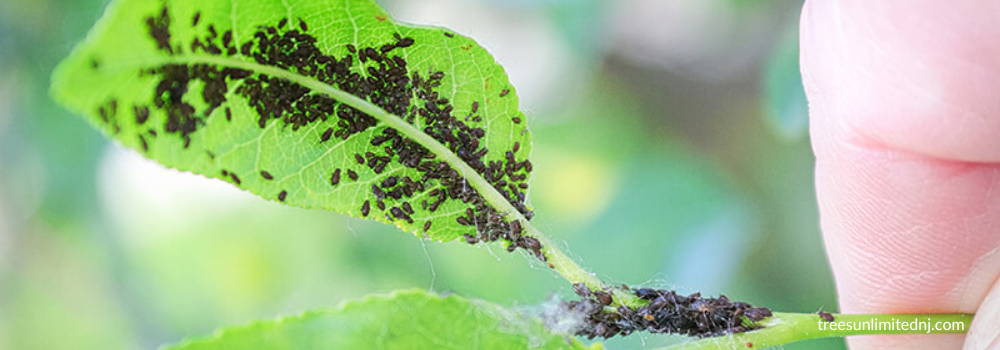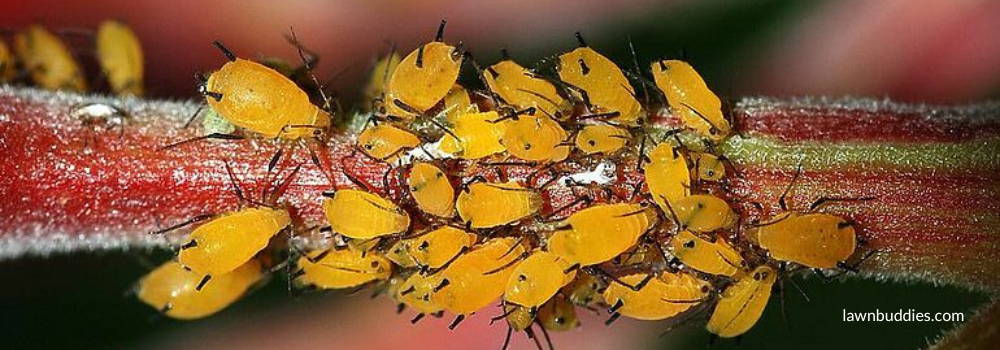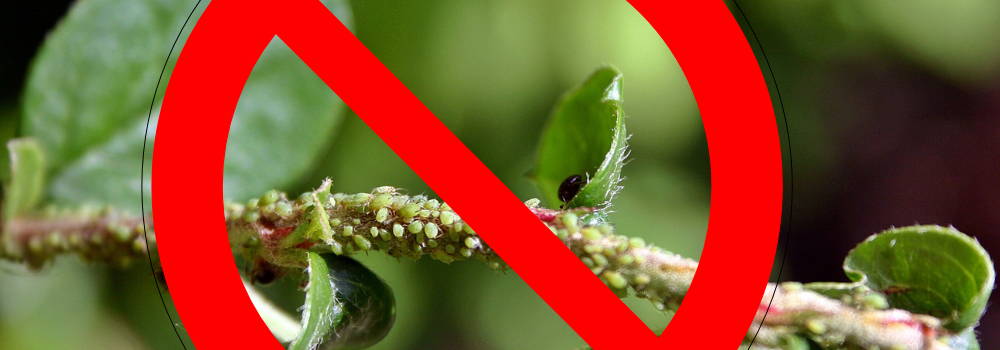Aphid Control: Controlling Aphids and Preventing Them from Coming Back
Small aphid populations do not usually cause a lot of trouble. Large infestations, however, can cause significant plant damage and reduce plant yield. Aphid pest control is best done by taking advantage of its natural predators and using low-impact approaches.
How to Control Aphids
There are various ways to control aphids. One of these is by planting nectar-producing flowers such as hyssop, alyssum, and cilantro. These flowers will attract lacewings, yellowjackets, ladybugs, parasitic wasps, hoverflies, and other beneficial insects that eat soft-bodied insects.
You should also consider providing nesting boxes and habitat for birds that feed on aphids such as hummingbirds, titmice, warblers, nuthatches, and wrens. Check your plants at least two times a week.
This will help you catch infestations early and get rid of aphids immediately. You should also remove weeds that are attractive to aphids such as mustard and sowthistle.
Avoid over-fertilizing your garden as well. Excess nitrogen promotes new leaf growth that these insects love to eat. You can use organic materials like compost or slow-release fertilizers instead. If you have seedlings in your garden, you should protect them with a floating row cover.
You can also implement the following low-impact approaches to get rid of an existing aphid population:
Remove Infested Stems and Leaves
You can remove the entire plant if you think that it will serve as an aphid reservoir for your garden.
Spray Plants with Water
Remove aphids from infested garden plants by spraying them with a strong gush of water from a hose or spray bottle. Repeat the process as needed.
Control Ants
Outdoor ants will protect aphids because they feed on the honeydew produced by these insects. That is why you should place a strip of sticky material around the trunk of aphid-infested plants or trees to separate the aphids from outdoor ants.
Biological Control
Aphids have natural predators such as soldier beetles, lady beetles, syrphid flies, parasitic wasps, and lacewings. They kill aphids through parasitism, predation, and other methods. You can attract them to your garden by providing various flowering plants, suitable habitat and water.
Flowers provide the pollen, shelter, and nectar that these valuable insects need to complete their life cycle. They are the best solution that you can implement when you are dealing with large aphid populations. If they are present in your lawn, they can reduce the risk of an aphid infestation.
Aphid Control Spray
Horticultural oils and insecticidal soaps can help control and prevent aphid infestations if applied properly. Soaps kill aphids by eliminating their protective outer coating, while oils work by suffocating them. However, oils and soaps will also kill beneficial insects. These products may damage some plants and flowers, so you should read the product label before using one.
The Ortho Bug B Gon Eco Insecticidal Soap Conc 500ml is a highly recommended product for controlling an aphid infestation in your garden.
We also recommend the Botanical Green House Vegetables BUG KILLER 950ml, Safers Insecticidal Soap RTU 1L for larger infestations or you can get the smaller bottle Safers Insecticidal Soap Concentrate 500ml for treating smaller infestations.
Test the product on a leaf before treating the whole plant. Do not use these products during hot weather. You should not use them on water-stressed plants, either. The best thing about these products is that they do not leave any toxic residue, so they will not harm beneficial insects that will come to your garden after treatment.
If you are dealing with a serious infestation, you may consider using aphid-control pesticides. However, you should be aware of its potential consequences as well. Here are some of them.
Broad-spectrum insecticides will harm all plants and beneficial insects within the treated spot, so do not use them.
Using pesticides will worsen infestations because the aphid population will become resistant to these products.
Some insecticides are toxic to pets and humans. Exposure to these chemicals increases the risk of longer-term and immediate illnesses such as cancer.
Insecticides used near waterways and ponds can also poison aquatic organisms. That is why you should observe the following precautions when using any aphid-control spray:
Choose the least-toxic chemical for the job. Use it sparingly to prevent pesticide resistance and reduce damage to plants and natural predators.
Use only EPA-approved products or products that contain minimum risk ingredients. Follow the manufacturer’s instructions on how to use the product.
How to Control Aphids with Alcohol
You can use isopropyl alcohol, also known as rubbing alcohol or isopropanol, to deal with aphid infestations. Just make sure that it does not contain additives.
Grain alcohol or ethanol seems to offer the best results. You can make a homemade insecticidal spray by mixing equal parts water and 70% alcohol. If you are using 95% alcohol, combine 1.5 parts water and 1 part alcohol.
Soapy Emulsion
You can also make a soapy emulsion that can kill aphids without harming your plants. Simply combine 1 quart of water and a few teaspoons of dish soap then wipe or spray the mixture onto the stems, buds and leaves of your plants. Pay special attention to the top and undersides of leaves.
Do this every 2 to 3 days for a few weeks. You can add alcohol to the mixture as well. For example, combine 2 cups of alcohol, 1 tablespoon of liquid soap and 5 cups of water then transfer the mixture into a spray bottle.
When applying a soap or alcohol spray, test it on a small area first. You can apply it in the evening or early morning. Watch your plants for several days for adverse reactions before spraying them again with the solution. Some soaps contain additives that may harm plants, so choose only the purest form.
How to Identify Aphids
Aphids are small, pear-shaped insects with a pair of long antennae. Some species of aphids have a woolly or waxy coating. They can appear light green, white, pink, black, gray, brown and yellow.
Adult aphids are normally wingless, but some species can develop wings when populations become too large. That way, they can transfer to other plants and begin a new colony. These insects usually attack plants in large groups, but you may also see them in small numbers or alone.
Aphids usually eat various plants, but some species feed only on certain plants. Examples of such species include the green peach aphids, potato aphids, melon aphids, cabbage aphids, woolly apple aphids, fruit tree aphids and bean aphids. The green peach aphid is the most common garden aphid.
What Aphid Damage Looks Like
Yellowing, curling or stunted leaves are a common sign of aphid infestations, so always inspect the undersides of leaves because aphids love to stay and hide there. Aphids secrete a sugary substance called honeydew when feeding on plants.
The honeydew can be found on the stems or leaves of infested plants. It can also drop onto outdoor furniture, cars and driveways and attract ants and other garden pests that gather the liquid for food. The substance can cause a fungal disease called sooty mould, which causes leaves and branches to look black.
Fruits and flowers can become deformed or distorted because of feeding aphids. Aphids may also spread diseases between plants and cause galls to develop on leaves or roots.




